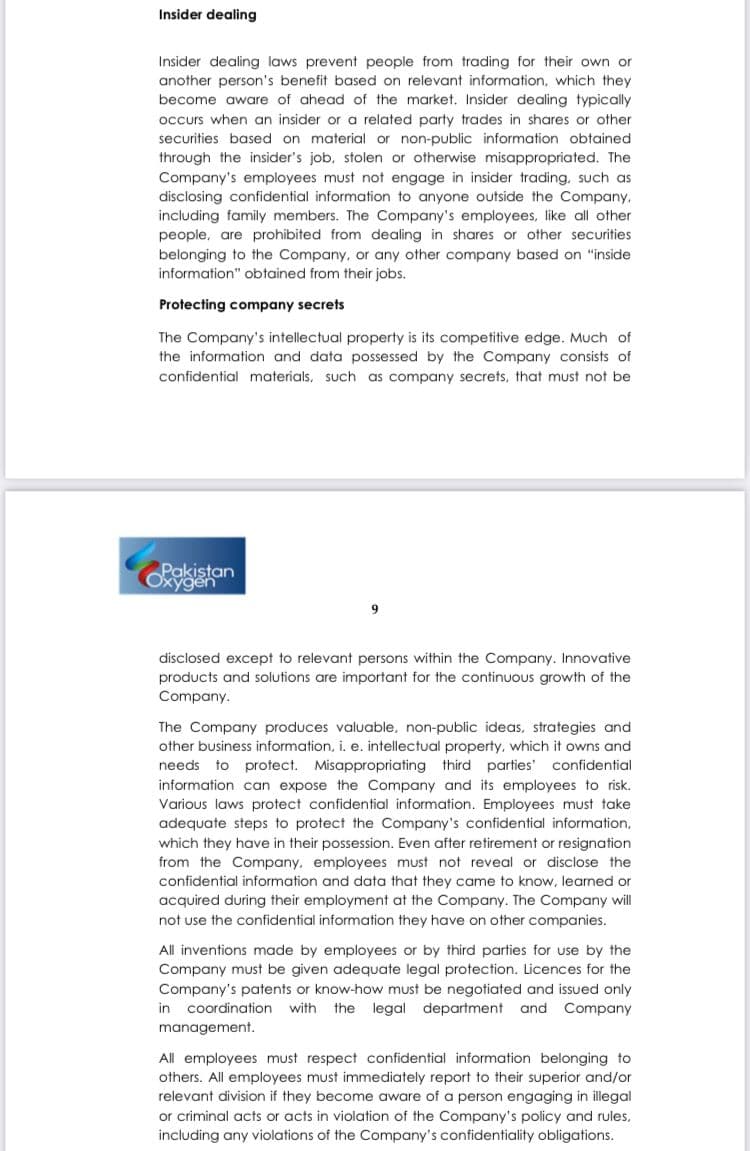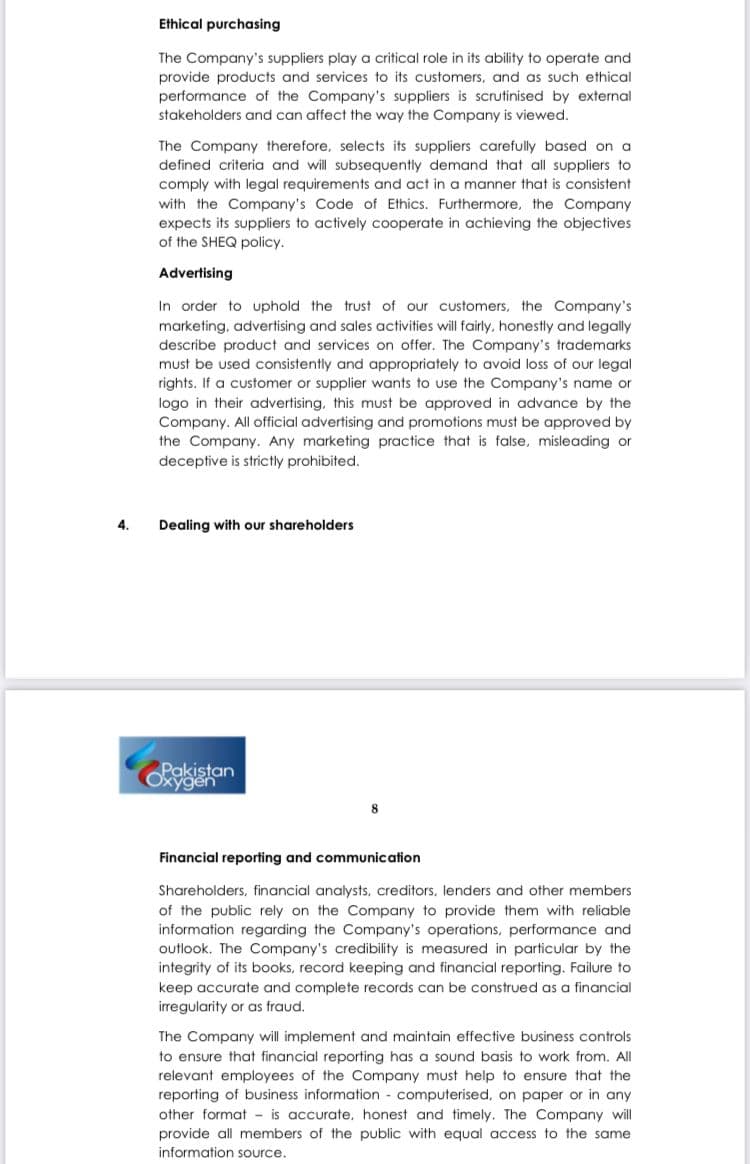Purchasing and Supply Chain Management
6th Edition
ISBN:9781285869681
Author:Robert M. Monczka, Robert B. Handfield, Larry C. Giunipero, James L. Patterson
Publisher:Robert M. Monczka, Robert B. Handfield, Larry C. Giunipero, James L. Patterson
ChapterC: Cases
Section: Chapter Questions
Problem 1.5A
Related questions
Question
generate a summary of this

Transcribed Image Text:Insider dealing
Insider dealing laws prevent people from trading for their own or
another person's benefit based on relevant information, which they
become aware of ahead of the market. Insider dealing typically
occurs when an insider or a related party trades in shares or other
securities based on material or non-public information obtained
through the insider's job, stolen or otherwise misappropriated. The
Company's employees must not engage in insider trading, such as
disclosing confidential information to anyone outside the Company.
including family members. The Company's employees, like all other
people, are prohibited from dealing in shares or other securities
belonging to the Company, or any other company based on "inside
information" obtained from their jobs.
Protecting company secrets
The Company's intellectual property is its competitive edge. Much of
the information and data possessed by the Company consists of
confidential materials, such as company secrets, that must not be
Pakistan
Oxygen
9
disclosed except to relevant persons within the Company. Innovative
products and solutions are important for the continuous growth of the
Company.
The Company produces valuable, non-public ideas, strategies and
other business information, i. e. intellectual property, which it owns and
protect. Misappropriating third parties' confidential
information can expose the Company and its employees to risk.
Various laws protect confidential information. Employees must take
adequate steps to protect the Company's confidential information,
which they have in their possession. Even after retirement or resignation
from the Company, employees must not reveal or disclose the
needs to
confidential information and data that they came to know, learned or
acquired during their employment at the Company. The Company will
not use the confidential information they have on other companies.
All inventions made by employees or by third parties for use by the
Company must be given adequate legal protection. Licences for the
Company's patents or know-how must be negotiated and issued only
coordination with
in
the legal department and Company
management.
All employees must respect confidential information belonging to
others. All employees must immediately report to their superior and/or
relevant division if they become aware of a person engaging in illegal
or criminal acts or acts in violation of the Company's policy and rules,
including any violations of the Company's confidentiality obligations.

Transcribed Image Text:Ethical purchasing
The Company's suppliers play a critical role in its ability to operate and
provide products and services to its customers, and as such ethical
performance of the Company's suppliers is scrutinised by external
stakeholders and can affect the way the Company is viewed.
The Company therefore, selects its suppliers carefully based on a
defined criteria and will subsequently demand that all suppliers to
comply with legal requirements and act in a manner that is consistent
with the Company's Code of Ethics. Furthermore, the Company
expects its suppliers to actively cooperate in achieving the objectives
of the SHEQ policy.
Advertising
In order to uphold the trust of our customers, the Company's
marketing, advertising and sales activities will fairly, honestly and legally
describe product and services on offer. The Company's trademarks
must be used consistently and appropriately to avoid loss of our legal
rights. If a customer or supplier wants to use the Company's name or
logo in their advertising, this must be approved in advance by the
Company. All official advertising and promotions must be approved by
the Company. Any marketing practice that is false, misleading or
deceptive is strictly prohibited.
4.
Dealing with our shareholders
Pakistan
Oxygenn
8
Financial reporting and communication
Shareholders, financial analysts, creditors, lenders and other members
of the public rely on the Company to provide them with reliable
information regarding the Company's operations, performance and
outlook. The Company's credibility is measured in particular by the
integrity of its books, record keeping and financial reporting. Failure to
keep accurate and complete records can be construed as a financial
irregularity or as fraud.
The Company will implement and maintain effective business controls
to ensure that financial reporting has a sound basis to work from. All
relevant employees of the Company must help to ensure that the
reporting of business information computerised, on paper or in any
other format - is accurate, honest and timely. The Company will
provide all members of the public with equal access to the same
information source.
Expert Solution
This question has been solved!
Explore an expertly crafted, step-by-step solution for a thorough understanding of key concepts.
Step by step
Solved in 2 steps

Recommended textbooks for you

Purchasing and Supply Chain Management
Operations Management
ISBN:
9781285869681
Author:
Robert M. Monczka, Robert B. Handfield, Larry C. Giunipero, James L. Patterson
Publisher:
Cengage Learning

Purchasing and Supply Chain Management
Operations Management
ISBN:
9781285869681
Author:
Robert M. Monczka, Robert B. Handfield, Larry C. Giunipero, James L. Patterson
Publisher:
Cengage Learning